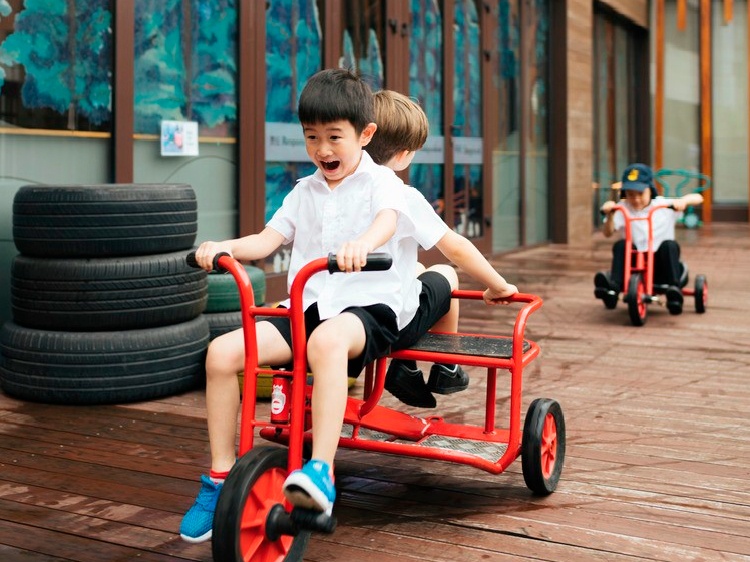
Lynn McLaren
EY3 Classroom Teacher
Mental health in adults and children has become very prominent in recent years and especially recently as we navigate our way through the journey of Covid-19. We are now more aware of the importance of a good mental health and as adults we recognise how we can work towards this. We therefore obviously want the same for our own children.
Good mental health is an important part of healthy child development. It helps children build positive social and emotional behaviour, thinking and communication skills. It in turn lays the foundation for better mental health and wellbeing later in life. Your child’s early years of life really do lay the foundations for their future.

The Australian parenting website (Raising Children) states that children with good mental health:
There are many ways to support children with their mental health. One of these is the importance of physical activity and healthy eating habits. By offering healthy foods and encouraging healthy eating habits within the home we can support children with this. Supporting children to try plenty of different physical activities and sport gives them higher energy levels and promotes good levels of fitness. Taking part in fitness activities also helps children to feel good about themselves as they develop new skills.
Another key area is behaviour. This includes having family rules about behaviour and involving your children in developing the rules and consequences. Plus adapting and adjusting the rules and consequences as your children get older. Rules and boundaries help children of all ages to feel safe and secure. Helping your child to set realistic goals for their age and abilities and how to work towards achieving them. For example riding a bike without stablisers. Then ensuring that you praise your child’s efforts to achieve the goal, rather than the goal itself. Children need help to learn how to solve problems so that they develop the skills to do this independently when they are older. You can help your child by working out what the problem is and then together brainstorm some possible solutions and choose one to put into action. Encouraging your child to try new things, to be a risk taker and learn from their mistakes is so valuable.
Children experience lots of different emotions, it is all part of growing up. When children cope with big emotions or calm themselves down in a difficult or emotional situation, they are more than likely to feel good about themselves. So how can we help children to learn to manage these big emotions. Talk about emotions with your child and encourage them to recognise and label their emotions. It is also so important the we as adults let children know that it is natural and normal to have all sorts of feelings.
Reading stories about emotions helps children to understand and process in a different context. Role-modeling a positive outlook for your child is also an extremely helpful way for them to learn how to deal with their emotions. For example, ‘I’m really disappointed that my cake didn’t cook properly, but that’s OK – I’ll try again another time.’ Support your child when something is bothering them, by talking and listening to them, seeking support from nursery if necessary. Help children to manage small worries so that they don’t become big problems, you can do this by gently encouraging your child to do things they’re anxious about instead of avoiding scary situations.

A positive relationship with you directly and positively affects your child’s mental health. There are many ways to promote children’s mental health and well-being through a loving a supporting relationship. Tell them you love them, no matter what. You can also show love through your body language and nonverbal communication – for example, making eye contact, giving a hug or smiling at your child. As talked about before; use a positive, constructive and consistent approach to guide your child’s behaviour. Making time every day to talk and listen to your child is essential. If they want to talk, try to stop what you’re doing and give them your full attention. Enjoying time with your child doing activities they like is very valuable. Encourage your child to connect with others in the community – for example, waving and talking to neighbours, saying hello to the guards at the nursery gate and by, attending local community events. This gives children a stronger sense of their place in the world and helps them to learn how to relate to different people.
These are only just some of the many suggestions of how to support and develop good mental health within children. We hope you find them helpful and supportive. As ever if you have any concerns about your child please do not hesitate in speaking to your child’s teaching partners.